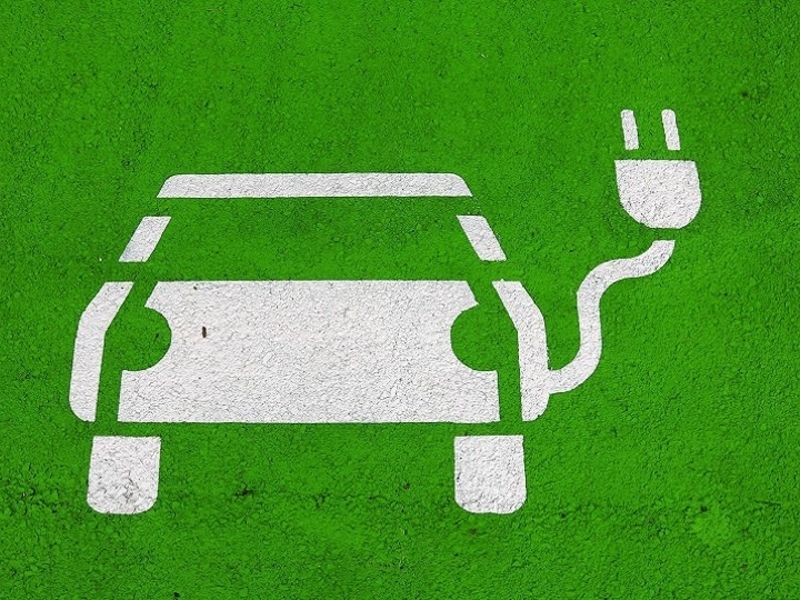
A survey of U.S. and international car buyers found the percentage of people who are “very likely” to make their next car purchase a battery-electric vehicle has more than doubled since 2019, but concerns about EV prices and lack of charging infrastructure still hinder wider investment.
The percentage of global EV “believers” — customers who are “very likely” to choose an EV as their next vehicle purchase — grew to 25 percent this year, according to a survey by consulting firm AlixPartners. That’s up from 11 percent in 2019.
Interest in the U.S. rose from 5 percent to 19 percent over the two-year period. And in California, where the market for EVs is well-established, interest jumped from 9 percent to 34 percent.
But the AlixPartners survey also indicated consumers who are “very unlikely” to buy an EV haven’t really budged. About 34 percent of survey participants who own an internal combustion engine-equipped vehicle said they are “moderately unlikely” or “very unlikely” to invest in an EV.
Consumers who have switched over and invested in an EV are staunchly loyal to the car type, according to the survey. A whopping 97 percent of EV owners surveyed claimed they are “moderately likely” or “very likely” to make their next purchase or lease another EV.
However, the survey also found that even as consumer interest in EVs hits an inflection point, the automotive industry could do more to convert ICE vehicle owners by addressing buyer concerns with EV range, charging infrastructure and vehicle cost.
Vehicle cost has carried over from 2019 as one of the biggest concerns buyers have about EVs, AlixPartners said.
Their survey found 70 percent of U.S. consumers would be willing to buy an EV if they were at price parity with ICE vehicles. Right now, just 10 percent of U.S. consumers are willing to pay a 25 percent price premium to make the switch, according to the survey.
That last piece is key, said Mark Wakefield, global co-leader of AlixPartners’ Automotive and Industrial Practice.
“It was interesting that the price premium really didn’t have a lot of takers,” Wakefield told Automotive News. “There’s a need to get closer to a price comparison, not a [total cost of ownership] comparison, to get the majority of the population really interested. That’s a longer journey than the magical $100 per kilowatt hour that people talk about.”
About 33 percent of survey participants reported annual income of under $50,000.
Plenty of weight rests on automakers’ shoulders when it comes to installing EV chargers, according to a majority of survey participants. The survey found 85 percent of U.S. buyers who are “moderately likely” or “very likely” to purchase an EV expect automakers to ensure they have access to charging networks.
In fact, 32 percent of those buyers said access to public chargers is instrumental when making a decision to invest in an EV.
About 53 percent of EV buyers in the U.S. already charge or would want to charge their vehicle at home the majority of the time, according to the survey. Office spaces are their next picks. Only a small fraction of survey participants expressed interest in charging up in a public space or dealership.
Consumers surveyed also indicated they don’t want to go out of their way to charge their cars. The survey found just 11 percent of consumers would entertain the idea of charging up at a gas station instead of at home or at work.
“If people don’t have charging at home available, it’s a lot tougher,” Wakefield said.
Buyers focused on battery driving range and price more than charging times in several ways they were surveyed, AlixPartners said.
About 35 percent of U.S. survey repondents selected range as a top concern. In contrast, focus on charging times was less prominent — just above 10 percent.
A notable portion of likely EV buyers in the U.S. — 47 percent — would prefer to buy their vehicles through an online process instead of in-person at a dealership, AlixPartners found.
Word-of-mouth has also proved to be a major factor in piquing interest in EVs. About 23 percent of EV buyers surveyed globally and 36 percent surveyed in the U.S. said influence of family and friends is the main reason for their consideration of an EV.
Automakers could benefit by including more of these “grassroots” channels in their sales models, AlixPartners said.
The survey polled a combined 8,124 licensed drivers from China, France, Germany, Italy, Japan, the United Kingdom and the United States. California drivers were also analyzed separately.
AlixPartners said the survey was administered between Aug. 17 and 24 in the U.S. and between Aug. 25 and 31 in the other listed countries.